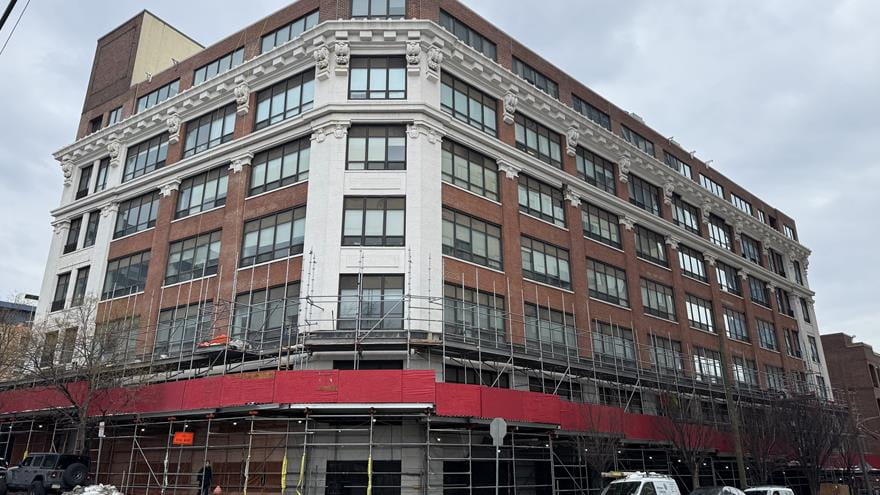Here’s How Drexel’s Victim Services Coordinator Can Help You Rebuild After a Crime

Meet Amy Spiller, the victims service coordinator in Drexel University’s Department of Public Safety. For over two years, she has been helping Drexel students, faculty or staff who are victims of crime — any crime, but particularly sexual assault — by helping them get their life back on track.
In this story published in October, which is Domestic Violence Awareness month, Spiller explained what her role is at the University and how she can provide support and services to Dragons in need.
Q: Can you tell me a little about your background?
A: I would love to! A little personal background: I am the youngest of seven. Six boys and myself. I knew from an early age that I enjoyed helping others. My parents were a lot older than the parents of most kids my age, so for me, taking care of people just seemed to come so naturally. I always seemed to be the friend who would make sure everyone got home safe and checked on them the next morning.
So, when I heard that the Philadelphia Police Department was hiring, it just seemed like the perfect fit for me to continue to protect and care for those that were in need. I served for 14 years as a patrol officer in the city’s Point Breeze neighborhood, until I was injured during a robbery.
Q: So, what exactly does a Victim Services Coordinator do?
A: My role at Drexel is to offer support and resources to any student, faculty and professional staff member who may have been a victim of a crime (domestic assault, sexual assault, robbery, theft, etc.). For those victims who have been sexually assaulted, I will accompany them when I am available or arrange transportation to and from the Philadelphia Sexual Assault Response Center (PSARC) and the Philadelphia Police Department’s Special Victims Unit. I can also provide a list of resources that are available to them, like Women Organized Against Rape (WOAR) or Drexel’s Office of Counseling and Health Services. If an arrest is made and their case goes to court, I will transport and accompany them to the criminal court proceedings, as well as keep them up-to-date with the status of their case. For victims of domestic violence, they may be interested in obtaining a Protection from Abuse Order. I can explain the process and arrange to go with them while they file for one. For victims who are eligible, Pennsylvania offers victim compensation. I can help navigate that process as well.
Q: How is having a Victim Services Coordinator beneficial for the Drexel community?
A: In general, it’s a position that most colleges and universities should have. Drexel is situated within a large city and unfortunately, with that comes crime. For many of our students, college is the first time they have ever been away from their parents. We have students who come from all types of backgrounds and experiences — small towns, rural areas, cities and different places around the world. Many students would have no idea how to navigate the criminal justice system in the event that they are affected by crime. So, what I try to offer is the support that they would get from a loved one if they were here with them after experiencing such a traumatic event. I make myself available to them. I’ve been known to walk students to class and I’ve met them for a cup of coffee. I also follow up through texts and emails. I try to do little things to put them at ease and to let them know that they are not alone and that the Drexel family cares about them.
Q: How can someone reach out for assistance?
A: They can call my office at 215.895.1564 or call or text my mobile phone at 267.542.3569. There are times when I’m not the right person to help them, but I will give them the resources to get them to where they need to be. More information about Victim Services can be found on the Public Safety website.
Q: Which offices and departments at Drexel do you work with?
A: I work with the Office of Equality and Diversity, which coordinates Title IX compliance and administers the University’s Sexual and Gender-Based Harassment and Misconduct Policy, and the Drexel Counseling Center.
Q: Are there any common misconceptions people might have about your work?
A: Not every case goes to court. Not everyone accused is arrested. Some cases never get prosecuted. You can report an assault but choose not to pursue criminal charges. What is important is that if you believe that you were a victim of a crime, you can talk to someone in law enforcement to ensure that the crime gets documented, whether you choose to press charges or not. Just by documenting the crime, you could be helping someone else.
Q: Is there anything else you’d want to Drexel community to know about you or your work?
A: As a survivor of both sexual and domestic assault, I can take from my personal experiences as well as my years of law enforcement experience and genuinely talk from the heart, not just provide facts. This job has allowed me the opportunity to make an impact on those who need Drexel’s support the most.
I’m not a counselor or an advocate. I’m here to support and offer resources to Drexel’s community during some of their worst times and to help them to rebuild and get them back on track to feeling safe and comfortable.
In This Article
Drexel News is produced by
University Marketing and Communications.

